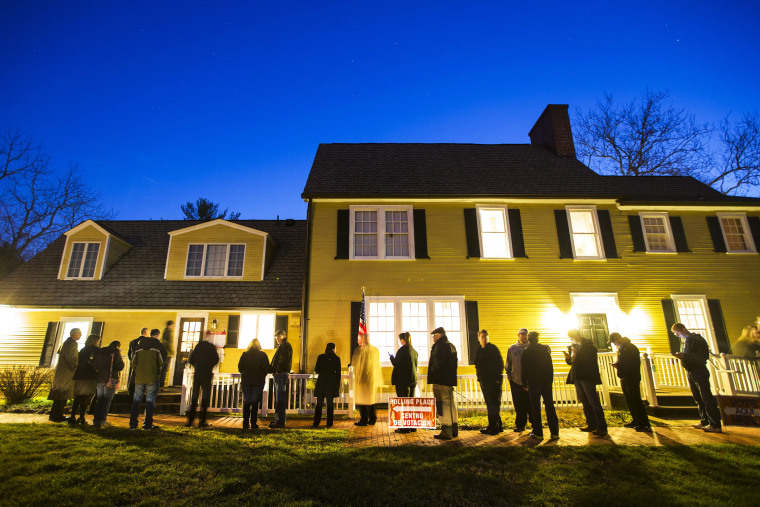After several years in which so many states have created new voting restrictions, it's heartening to see a state move aggressively in the opposite direction. The Associated Press reports on a historic move in Virginia:
More than 200,000 convicted felons will be able to cast ballots in the swing state of Virginia in November's election under a sweeping executive order by Democratic Gov. Terry McAuliffe announced Friday that restores their rights to vote and run for office. The Democrat said his actions would help undo Virginia's long history of trying to suppress the black vote.
"Too often in both our distant and recent history, politicians have used their authority to restrict people's ability to participate in our democracy," McAuliffe said in a statement. "Today we are reversing that disturbing trend and restoring the rights of more than 200,000 of our fellow Virginians, who work, raise families and pay taxes in every corner of our Commonwealth."
To understand how we reached this point, it's worth noting, as MSNBC's Ari Melber reported a while back, that laws blocking ex-felons from voting have a major impact on elections. Nearly 6 million Americans are currently denied the right to vote because of their criminal records, with half of the nation's states barring former convicts from voting even after they've paid their debt to society.
Virginia, in particular, created some of the most punitive policies in the nation. That is, until now.
Also note, 200,000 people is a significant number of Americans. To put this total in perspective, consider the fact that roughly 4 million Virginians voted in the 2012 presidential election, so when we talk about 200,000 people, that's roughly 5 percent of the electorate.
In 2012, President Obama defeated Mitt Romney in the commonwealth by less than 4 percentage points.
The Washington Post added that McAuliffe's order, which covers former felons who are not on probation or parole, is believed to be "the biggest-ever single action taken to restore voting rights in this country."
Virginia Republicans spent the afternoon complaining about the new policy, but let's not forget that giving Americans the right to participate in their own democracy doesn't have to be considered a partisan issue. Sen. Rand Paul (R-Ky.), for example, has introduced legislation to restore voting rights to non-violent felons in federal elections.
As for McAuliffe, he's demonstrated some real leadership on this issue for quite a while. In 2014, the Democratic governor shrunk the amount of time felons have to wait before seeking restoration of their voting rights and removed some of the offenses that necessitated a delay in the first place.
McAuliffe's legacy may very well be the strides he's taken on voting rights, and the commonwealth will be better for it.
